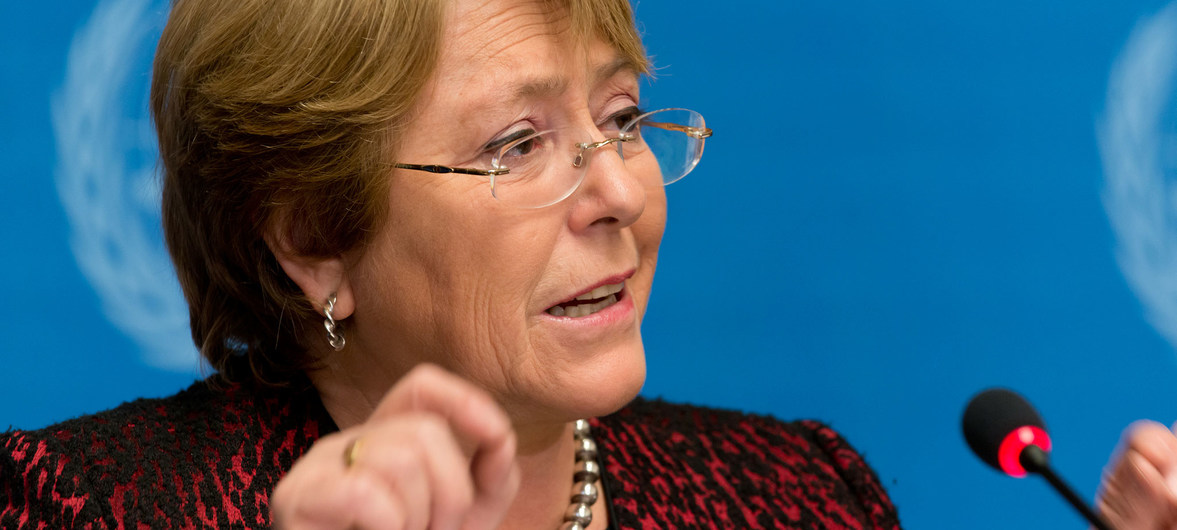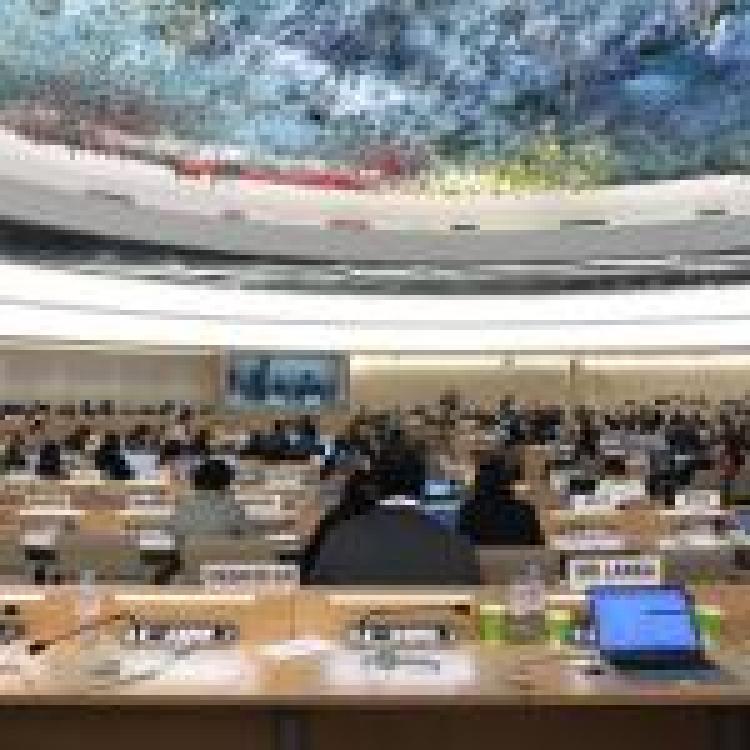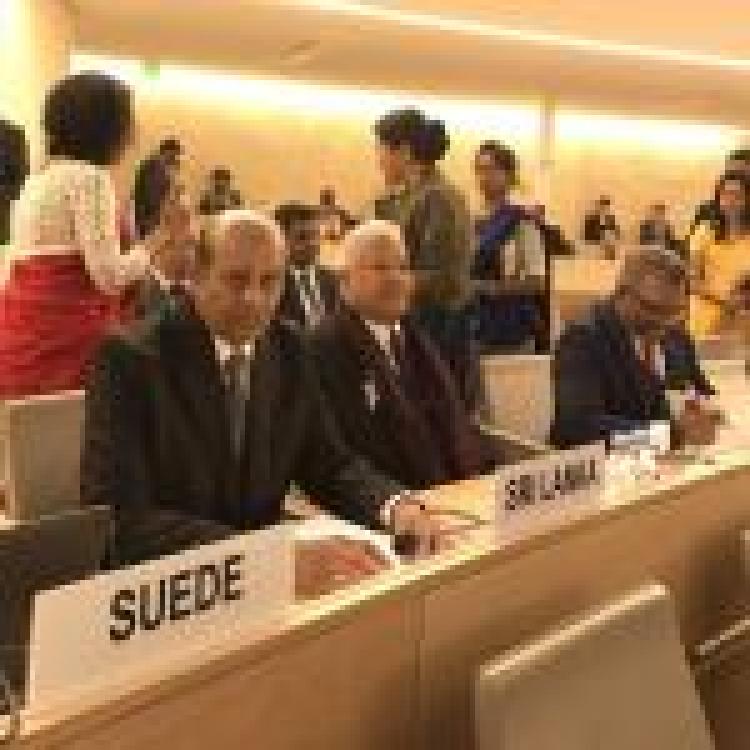
The UN human rights chief called on Sri Lanka to ensure “consistent, comprehensive and accelerated” implementation of a resolution on accountability in an address to the Human Rights Council today, where she urged Colombo to hold perpetrators of crimes to account.
Presenting her report to the council in Geneva, UN High Commissioner for Human Rights Michelle Bachelet said her office “encourages” Sri Lanka ”to implement a detailed and comprehensive strategy” for the transitional process with a fixed timeline”.
“There has been minimal progress on accountability,” she told the council.
“My report details the steps taken over a lengthy period to address several emblematic cases, and the lack of progress in setting up a special judicial mechanism to deal with the worst crimes committed during the 2009 conflict. Continuing impunity risks fuelling communal or inter-ethnic violence, and instability. Resolving these cases, and bringing the perpetrators of past crimes to justice, is necessary to restore the confidence of victims from all communities.”
In particular Bachelet highlighted the case of Shavendra Silva, a Sri Lankan commander who was recently appointed to the second-highest position in the army, as “a worrying development”. Silva is “implicated in alleged serious violations of international humanitarian and human rights law,” she added.
She noted that “implementation of resolution 30/1 needs to be more consistent, comprehensive and accelerated”.
“A contributing factor to delays appears to be a lack of common vision among the country’s highest leadership.
Deadlock on these important issues is an additional – and avoidable – problem, with damaging impact currently on victims from all ethnic and religious groups and on society as a whole.”
In her wide ranging statement she went on to say she is “also troubled about continuing allegations of torture and other human rights violations by security forces, including sexual violence”.
“Another step in the right direction would be an end to the surveillance of human rights defenders, reprisals against them, as well as against victims,” she added.
The High Commissioner concluded by stating,
“In closing, I emphasise that in co-sponsoring resolutions 30/1 and 34/1, the Government recognized the need to address the past in order to build a future securely grounded in accountability, respect for human rights and the rule of law. For victims and for society, this need continues. There is an opportunity, now, to leave behind a past of violence and human rights violations, through bold determination and leadership at all levels of Government”.
See the full text of her statement here.
Speaking directly after her statement, the Sri Lankan government went on to reject a hybrid accountability mechanism and criticised much of the High Commissioner’s report.


